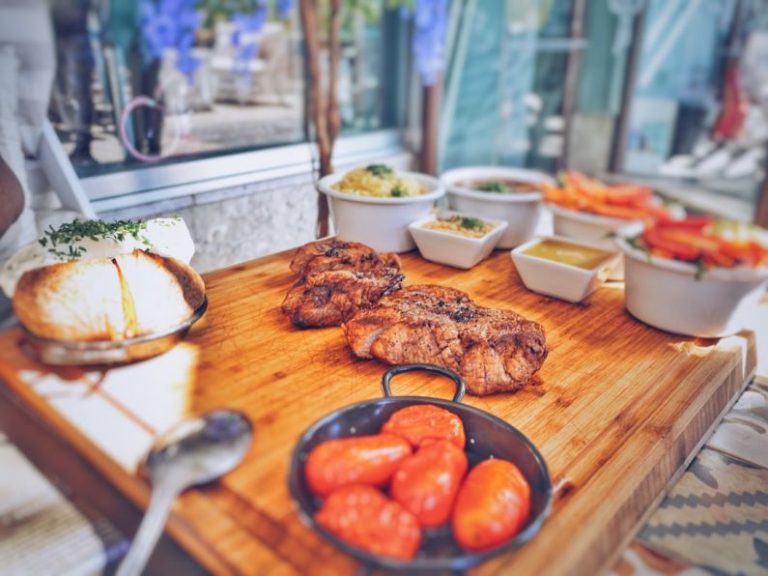
Food plays a pivotal role in cultural celebrations all around the world, serving as a unifying element that brings people together to commemorate traditions, express identity, and create lasting memories. From grand feasts to symbolic dishes, the significance of food in cultural festivities cannot be understated. Each dish carries with it a rich history, a connection to the past, and a sense of community that transcends language barriers. Let’s delve into the multifaceted role of food in cultural celebrations.
The Essence of Cultural Identity
Food is more than just sustenance; it is a reflection of a community’s values, beliefs, and heritage. In many cultures, traditional dishes are passed down through generations, preserving not only the recipes but also the stories and customs associated with them. These culinary traditions serve as a link to the past, allowing individuals to connect with their roots and honor their ancestors.
During cultural celebrations, such as Chinese New Year or Thanksgiving, specific dishes are prepared to symbolize prosperity, luck, or gratitude. For example, in the Chinese culture, dumplings are a staple during Lunar New Year as they represent wealth and good fortune. Similarly, turkey is a symbolic centerpiece on the Thanksgiving table in the United States, signifying unity and abundance. By partaking in these traditional foods, individuals reaffirm their cultural identity and celebrate their heritage.
Bringing People Together
Food has a remarkable ability to bring people together, transcending differences and fostering connections among individuals. Cultural celebrations often revolve around communal meals where friends and family gather to share in the joy of the occasion. The act of preparing and enjoying a meal together creates a sense of unity and belonging that strengthens social bonds.
Whether it’s a potluck dinner during Diwali in India or a barbecue in Australia on Australia Day, food serves as a common ground where people can come together to celebrate their shared values and customs. The act of sharing a meal is a universal language that promotes understanding and camaraderie, breaking down barriers and building bridges between individuals from diverse backgrounds.
Preserving Heritage and Traditions
Cultural celebrations play a vital role in preserving heritage and traditions, ensuring that customs and practices are passed down to future generations. Food, as a central component of these celebrations, serves as a tangible link to the past and a way to keep cultural practices alive.
Through the preparation and consumption of traditional dishes, individuals not only honor their ancestors but also transmit cultural knowledge to their children and grandchildren. By participating in cultural celebrations and partaking in customary foods, younger generations learn about their heritage and develop a sense of pride in their cultural identity.
Creating Lasting Memories
Food has the power to evoke nostalgia and create lasting memories that endure for years to come. Cultural celebrations often involve special dishes that are reserved for these occasions, making them all the more significant and memorable. Whether it’s the aroma of spices wafting through the air during Eid al-Fitr or the sweetness of a wedding cake at a traditional ceremony, these foods become intertwined with the memories of the event.
The act of preparing and sharing these dishes with loved ones creates a sense of connection and joy that lingers long after the celebration has ended. These culinary experiences become cherished memories that individuals carry with them, serving as a reminder of the importance of cultural traditions and the role of food in shaping our lives.
Embracing Diversity and Inclusivity
Food plays a crucial role in promoting diversity and inclusivity during cultural celebrations, allowing individuals from different backgrounds to come together and appreciate each other’s traditions. In a world that is increasingly interconnected, food serves as a bridge that transcends cultural boundaries and fosters mutual respect and understanding.
Cultural celebrations provide an opportunity for people to explore new cuisines, learn about different customs, and celebrate the rich tapestry of human experience. By sharing meals and exchanging culinary traditions, individuals can cultivate a sense of empathy and appreciation for the diverse array of cultures that make up our global community.
In conclusion, the role of food in cultural celebrations is multifaceted and profound, serving as a means of expressing identity, fostering connections, preserving heritage, creating memories, and promoting inclusivity. Across the globe, food plays a central role in bringing people together to commemorate traditions and celebrate the rich diversity of human culture. As we partake in the culinary delights of cultural celebrations, we not only nourish our bodies but also feed our souls with the richness of our shared human experience.





